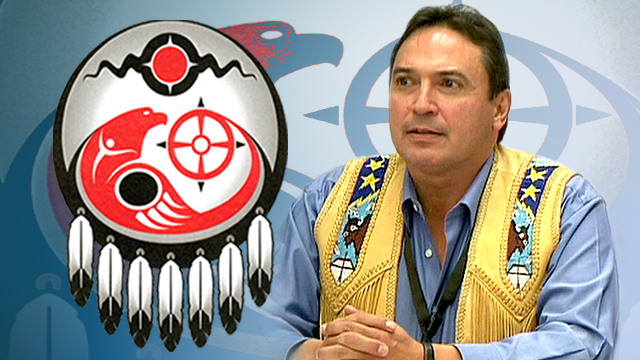By Laura Mushumanski
(ANNews) – Much like having a Minister of Indigenous Services to ensure Indigenous people can take care of themselves, the history of the Canadian Child Welfare System has left lingering trails of oppression that have bled into every part of Indigenous ways of being.
There is an alarming number of 40,000 First Nations youth and children currently in the Canadian Child Welfare System. And even though last year when the Trudeau government passed Bill C-92: An Act Representing First Nations, Inuit and Metis Children, Youth and Families, the bill did not include any funding tied to the new law.
In the year 2020, there are more Indigenous children and youth in the care of the Child Welfare System, than at the peak of the Residential School era.
Bill C-92 specifically was established to affirm the rights and jurisdiction of Indigenous peoples in relation to child and family services and to set out principles applicable, on a national level, to the provision of child and family services in relation to Indigenous children. In other words, to reduce the number of Indigenous youth and children in the Child Welfare System and allow Indigenous communities to create their own child welfare systems so they can bring and keep their youth within their communities.
Assembly of First Nations (AFN) National Chief Perry Bellegarde wrote in regards to Bill C-92, “I have often spoken of “occupying the field” as an important first step to regain our rightful and sovereign law-making authority. The Act affirms First Nations rights and jurisdiction over child and family services, including the authority of First Nations to establish laws grounded in their culture, beliefs and values, and sets out national standards and principles aimed to support First Nations child and family wellbeing. The Protocol is the first step in determining how the Act will be implemented, as determined by First Nations. Its main purpose is to define how Canada and the AFN will explore principles and processes that will support the transformation of First Nations child and family services and the inclusion of greater input, control and decision-making by First Nations.”
At the beginning of July 2020, the Minister of Indigenous Services, Marc Miller signed an agreement for the Protocol on the Indigenous Child and Family Services Act with AFN National Chief Bellegarde. The established agreement for First Nations child and family services created a forum where the federal government and Assembly of First Nations can negotiate funding in support of communities who want to take on the responsibility of caring for Indigenous children. The estimated cost to restructure the new First Nations led Child Welfare System would require $3.5 billion in funding for over the next five years.
Bellegarde stated on the Assembly of First Nations bulletin page, “For the first time in Canadian history, the Act affirms that First Nations’ law is paramount to federal, provincial, and territorial law. As National Chief, I believe the Protocol is a positive step that will help ensure that the unique needs of First Nations children, youth and families are met. The signing of the Protocol was a priority for me because it ensures that a distinctions-based framework is used to implement the Act in a meaningful and respectful way.”
The restructuring of the new First Nations led Child Welfare System would include costs that cover the complexities relating to legal issues and coordinating with provincial agencies. According to AFN’s Manitoba Regional Chief Kevin Hart, some First Nations may end up in debt before anything is implemented if funding is not allocated properly because of preexisting funding agreements with each individual First Nation.
The essence of Bill C-92 is about rebuilding Indigenous communities, and the funding for the restructuring of the care for our Indigenous children and youth heavily relies on how the federal government will properly resource funds so First Nations can respectfully take over the sovereignty and jurisdiction of Indigenous children and youth.
Between the federal government and the Assembly of First Nations, there has also been an agreement made to ensure that the progress and commitment of Bill C-92 is carried out by having regular bilateral meetings. Both parties are to develop a ‘national distinctions-based policy’, along with tools and mechanisms to support First Nations with the transition of instilling national standards on how Indigenous children and youth should be treated.
To date, First Nations national organizations have signed an agreement with the federal government to take over the sovereignty and jurisdiction of First Nations children and youth, but both Métis and Inuit national organizations have not established an agreement to take on responsibility for caring for Métis and Inuit children and youth.
Laura Mushumanski is a Local Journalist Initiative reporter for Alberta Native News.




Be the first to comment on "Indigenous Social Justice Series: Indigenous Jurisdiction Over Child Welfare"